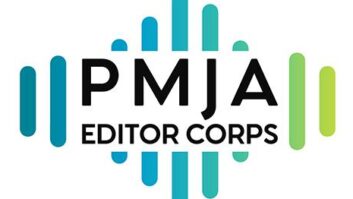The National Religious Broadcasters on Tuesday issued a statement “reaffirming freedom of speech as the cornerstone of American democracy.”
NRB is an association of Christian communicators. Its statement follows controversy over comments by TV personality Jimmy Kimmel following the murder of personality Charlie Kirk, and ensuing remarks by FCC Chairman Brendan Carr.
Carr said on a podcast last week that broadcasters “can find ways to change conduct and take actions on Kimmel, or there’s going to be additional work for the FCC ahead.” Many people understood Carr to be threatening that regulatory consequences would ensue because of content that the administration did not like. “We can do this the easy way or the hard way,” he said.
Carr has accused Democrats of distorting his intentions and that he wasn’t threatening to pull licenses. But several prominent Republicans also criticized Carr’s remarks. Sen. Ted Cruz, a supporter, said Carr’s remarks were “dangerous as hell.”
Now, without mentioning Carr or the Trump administration, the NRB has called on the FCC to uphold its standards consistently and fairly.
“The strength of our democratic republic lies in its openness to diverse voices in the public square, and the government is responsible for allowing space for civil disagreement,” said Troy A. Miller, NRB president and CEO.
“When one voice is suppressed, all voices are at risk. If viewpoint-based suppression can be directed at mainstream broadcasters today, it could be directed at faith-based broadcasters tomorrow.”
[Related: Troy Miller on “How the FCC Can Define the Future of Free Speech”]
NRB General Counsel Michael Farris said it is the FCC’s job to ensure that “broadcasting in the public interest.”
“Imbalance alone should never serve as grounds for silencing a broadcaster. If that were the standard, Christian radio and television would be at risk, as they rightly take strong positions without providing equal time to opposing viewpoints. The role of government is to safeguard speech, not restrict it.”
NRB said that the FCC “has the opportunity to maintain an environment where disagreement can exist without coercion.”
Broadcast associations seemed to tread carefully during the Kimmel/Carr dustup over the past week, presumably reflecting the nuanced relationships they and their members seek to maintain with legislators and regulators on various fronts.
On Saturday, on the website MinistryWatch, Warren Cole Smith wrote that the National Religious Broadcasters had not yet commented about Carr’s remarks.
“This silence is notable given NRB’s advocacy role in defending religious broadcasters against FCC pressures,” he wrote then. “For several years, NRB leaders said it wanted to be as strong an advocate for the First Amendment as the NRA was for the Second Amendment. That promise now seems seriously compromised.” MinistryWatch subsequently posted NRB’s statement.
It took the National Association of Broadcasters several days to issue a public comment after Carr’s remarks hit the headlines last week. NAB President/CEO Curtis LeGeyt posted about it over the weekend, and he criticized administrations of both parties for their actions on free speech. LeGeyt has been vocal in the past about the need to protest press freedoms.
[Related: LeGeyt on AM Bill and Broadcasters’ Editorial Independence]






